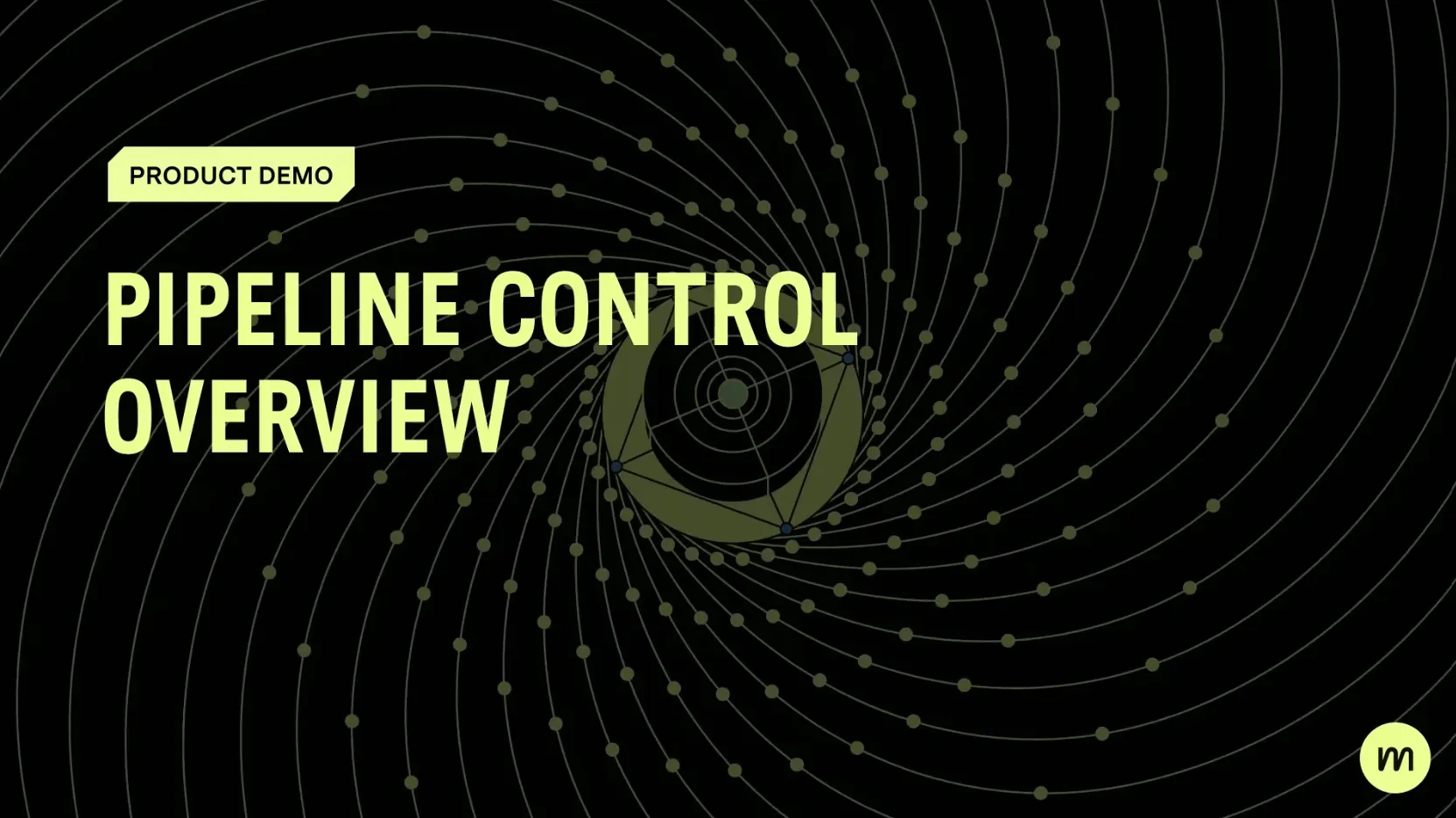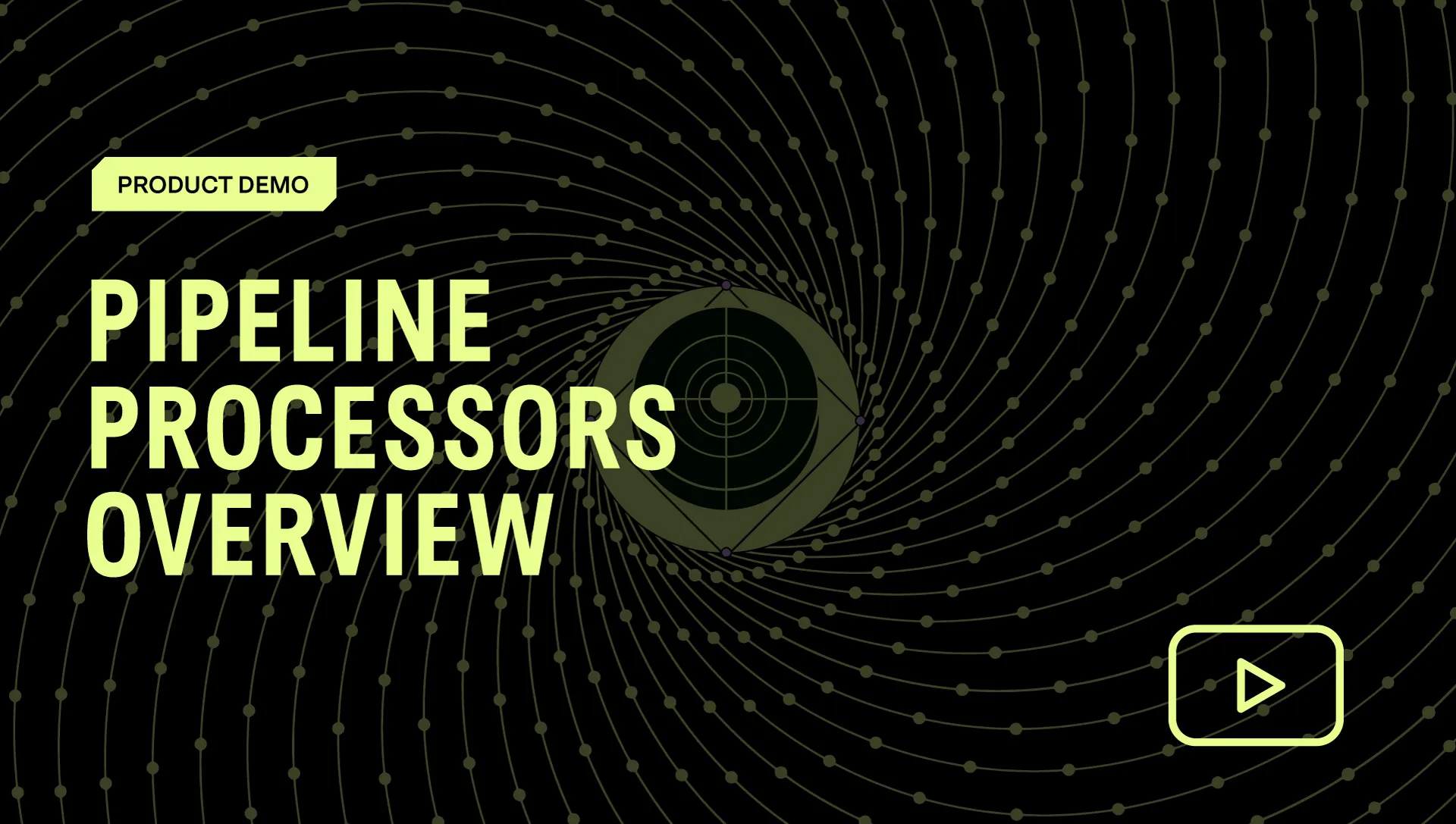devops

Accelerate Digital Transformation
Drive Digital Transformation
DevOps teams typically operate within an agile framework, whereby small units of work are identified and developed within short timeframes, breaking development, QA, and operation silos. This is only possible when DevOps teams have a reliable set of tools and utilities and relevant data sources to test and validate software through the development process quickly. Telemetry pipeline helps gather and deliver the right data to the right tools for faster dev cycles.
Benefit
01
Increase Data Utility
Mezmo Telemetry Pipeline expands the usability of your telemetry data. Pipeline gets it in the right format, routes it to your current analytics tools. This boosts your team's ability to efficiently manage application delivery, service reliability, and security, leading to increased effectiveness across the board.
Benefit
02
Accelerate Resolution Times
Speed up debugging and troubleshooting by boosting the "signal to noise ratio" of your telemetry data and directing it to the appropriate team. Aligning data formats across platforms enhances collaboration and root cause identification, while data enrichment deepens problem comprehension. With a collaborative team armed with superior data, issue resolution becomes more effective.
Benefit
03
WHAT IS Mezmo TELEMETRY PIPELINE
Control Data
Control data volume and costs by identifying unstructured telemetry data, removing low-value and repetitive data, and using sampling to reduce chatter. Employ intelligent routing rules to send certain data types to low-cost storage.
- Filter: Use the Filter Processor to drop events that may not be meaningful or to reduce the total amount of data forwarded to a subsequent processor or destination.
- Reduce: Take multiple log input events and combine them into a single event based on specified criteria. Use Reduce to combine many events into one over a specified window of time.
- Sample: Send only the events required to understand the data.
- Dedupe: Reduce “chatter” in logs. The overlap of data across fields is the key to having the Dedup Processor work effectively. This processor will emit the first matching record of the set of records that are being compared.
- Route: Intelligently route data to any observability, analytics, or visualization platform.
Transform Data
Increase your data value and optimize data flows by transforming and enriching data. Modify data as needed for compatibility with various end destinations. Enrich and augment data for better context. Scrub sensitive data, or encrypt it to maintain compliance standards.
- Event to Metric: Create a new metric within the pipeline from existing events and log messages.
- Parse: Various parsing options available to create multiple operations such as convert string to integers or parse timestamps.
- Aggregate metrics: Metric data can have more data points than needed to understand the behavior of a system. Remove excess metrics to reduce storage without sacrificing value.
- Encrypt: Use the Encrypt Processor when sending sensitive log data to storage, for example, when retaining log data containing account names and passwords.
Deliver Insights
With Mezmo you can extract insights before the data reaches high-cost destinations. You can monitor the health of your data pipeline and run various tests before you deploy your solution.
- Use simulation to test your pipelines before you deploy
- Monitor the health of pipelines with OOB dashboards.
- Derive metric data from Logs by parsing the log data to extract specific information.
- Count specific events within the log data and use that count to create a metric.






.jpeg)
.jpg)


